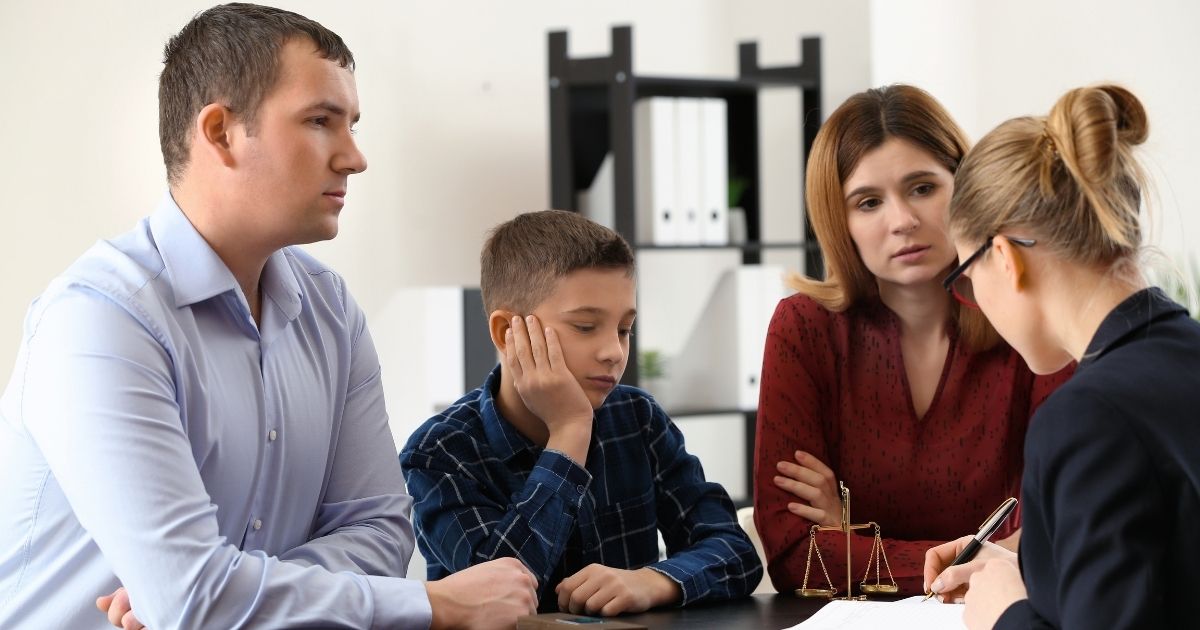Divorce is often a difficult process, but it can be complicated one when children are involved. Both parents may battle tooth and nail for custody, the division of time, the decision making, responsibilities, etc. The court is ultimately responsible for ensuring the child’s best interest and will make the final decision.
Unfortunately, the final decision of the court will too often result in disappointment for one or both parents, and that will sometimes lead to problems that could result in a violation of the custody agreement. Knowing how to recognize and deal with custody agreement violations is critically important to both the parents and children involved.
What Is the Best Way to Avoid a Co-Parenting Problem?
The most important thing to consider in any divorce where children are involved is the welfare of the children. It is important to adhere to the court-ordered custody agreement as closely as possible, which eliminates problems that too often end up in quarrels or using the children as leverage.
Sometimes there is no harm in being flexible as long as the parents can discuss any variation or exception to the agreement in a calm and agreeable manner. It is best, however, to do so alone without a child in proximity. If communication with a co-parent proves too difficult, it is best to discontinue discussions and consider other options. If a situation has changed or a circumstance has presented itself and you need to alter the agreement, use the court system to do so.
What Is Considered a Custody Agreement Violation?
A custody agreement violation is anything that impedes or hinders the relationship between a child and parent. This is applicable to both parents despite whether the agreement is sole or joint custody.
Violations for a parent releasing a child include the refusal of visitation, the deliberate act of delaying visitation, or the scheduling of activities during the scheduled visitation time. Violations for the visiting parent include not returning the child, deliberately returning the child outside of the scheduled drop-off time, and taking the child without notice.
A parent cannot make a legal decision without authority. A parent must not make any attempt to alienate the child from the other parent. Consistent disruptive behavior and harassment can also count as a violation. These include consistently telephoning, dropping by uninvited, and speaking badly about the other parent.
What Can You Do If Your Agreement Was Violated?
The first and best solution is always to express your concerns with the other parent. Sometimes making slight adjustments to the agreement works best. If no agreeable terms can be reached, you can file a motion to either enforce the agreement or modify it. You can also ask the court to enforce the agreement by imposing penalties on the other parent.
When possible, record any incidents that count as a violation and be as detailed as possible. You should always speak to an experienced family law attorney who specializes in custody and visitation disputes. In extreme emergencies, contact the police to prevent a bad situation from becoming worse.
What Are the Possible Consequences of Violating a Custody Agreement?
The court may take a number of actions in defense of the litigant. These include compensatory time, economic sanctions, and the changing of pick-up and drop-off times and locations.
The court may make any necessary modifications to the current agreement, whether temporary or permanent. Court-ordered family counseling for children and/or parents is sometimes ordered. In extreme cases, a warrant to appear or even incarceration is possible.
The Divorce Lawyers at Burnham Douglass Represent Clients Dealing with Custody Agreement Violations.
If you are having difficulty with your co-parent over a custody agreement violation, having an experienced attorney working for your best interests can make all the difference. Cherry Hill Divorce Lawyers at Burnham Douglass work hard to protect your rightsand obtain the best possible outcome in any custody agreement dispute. Call us at 856-751-5505 or contact us online for a free consultation. We are located in Marlton and Northfield, New Jersey, and we serve clients throughout South Jersey, including Camden County, Burlington County, Atlantic County, Gloucester County, and Mercer County.


